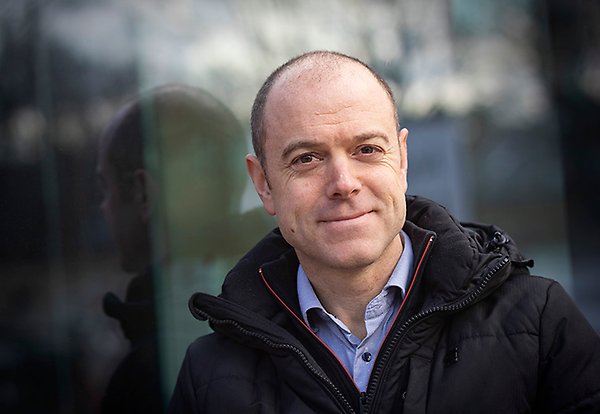Erik Ekström tells about his research in stochastic control theory

Erik Ekström. Photo: Mikael Wallerstedt.
Erik Ekström was born in 1977 and defended his thesis Selected problems in financial mathematics in 2004. He became professor of mathematics in 2015. Erik first began studying civil engineer at the Royal Institute of Technology (KTH) and later at Uppsala University in the high school teacher programme, with a focus on Swedish and mathematics, but soon found that mathematics held a stronger attraction than the classroom.
In 2005 and 2006, he was a postdoc at Ludwig Maximilian Universität in Munich, and the following year he was a lecturer at the University of Manchester.
“It’s important to get out and see how things work elsewhere in the world,” says Erik, who likes the way Uppsala University combines teaching and research in a kind of symbiosis.
“We have talented students who have many options thanks to the breadth of our mathematics courses, like choosing between the academic track or going into the finance industry.”
Erik had a 6-year research fellowship. The position was funded by the Swedish Research Council and enables research in his field: financial mathematics specialising on option pricing. More recently, he has been examining probability theory and stochastic control theory. One current area of research is ghost games, where one acts against invisible, in some cases, non-existent competitors.
“An example is online auctions where you do not know how many people are competing for a particular item. How, then, should you reason when you place your bid? With the help of mathematics, you can determine Nash equilibria, that is, strategies that none of the bidders want to deviate from.”
With the same kind of mathematics, you can also study problems that model fraud detection, where criminals steal data from a electronic transmission during short sequences.
“When there is a pattern in the data losses, the probability that they are not random increases.”
Erik is also working on developing the Master's programme in financial mathematics.
“We want the programme to include a larger proportion of modern statistics and data science.”
Stochastic control theory
Control problems arise in many fields, including economics, medicine, computer science, and various engineering sciences. In stochastic control theory, the underlying system is disturbed by noise and the precise effect of a particular strategy is impossible to predict.
An example of stochastic control problems is card games, where the effect of a player’s strategy depends on random factors, such as the opponent’s cards and what cards the player is dealt in the future. If the participants have a deck of cards with an unknown distribution of cards, a complication arises.
Techniques from both probability theory and classical analysis are used because of the strong links between probability theory and differential equations.
